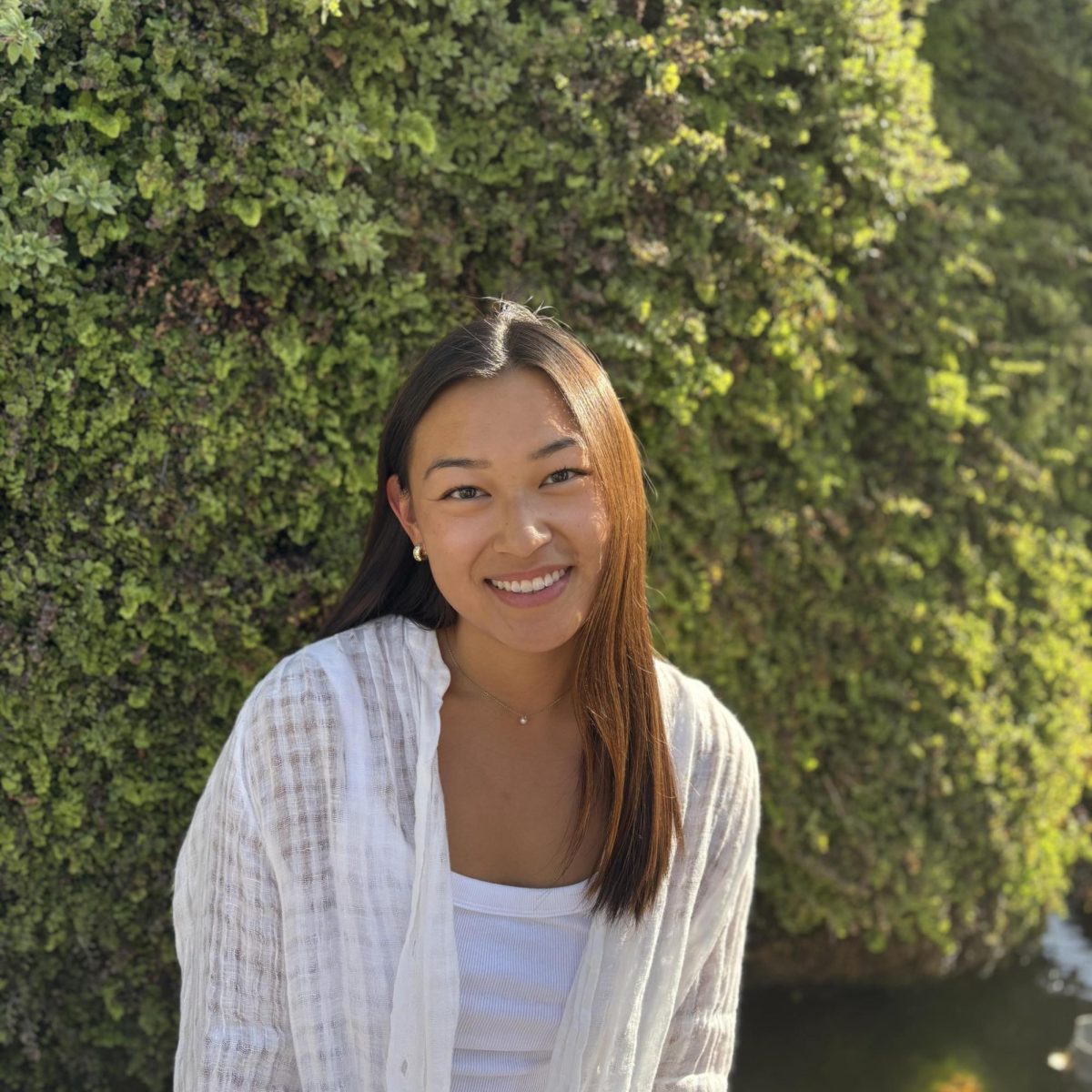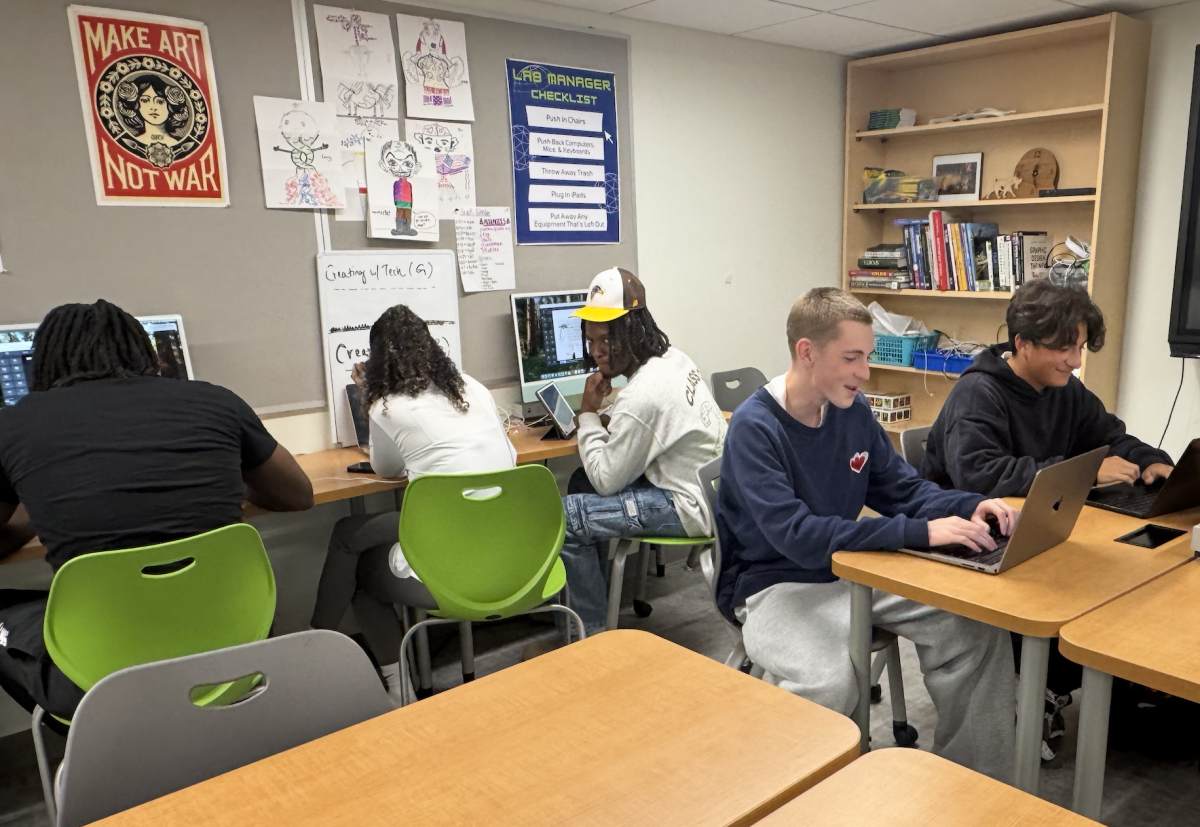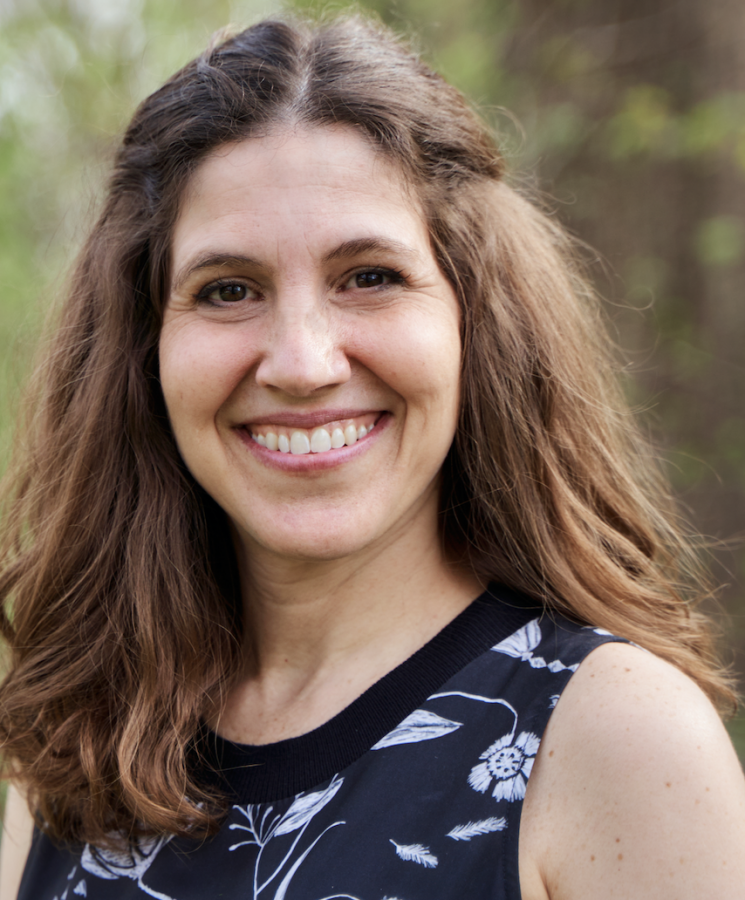Natalie Mayer: “Hyper, Passionate, Friendly,” and Born to Teach
When Natalie Mayer, a biology enthusiast, was a little kid, one of her favorite activities was teaching: “My neighborhood friends and I would gather in my basement around my easel chalkboard, and I would teach them math problems and spelling. I always just loved teaching, and I always knew in my head that I wanted to be a teacher,” she explains.
Her path to teaching at Friends Select, though it passes through varied other careers, can always connect back to her persistent passion for science. Throughout school, Natalie received consistent encouragement from her family and teachers to pursue this passion. Though she never took a serious biology course in high school, she quickly discovered her interest in biological sciences through college courses at the University of Pennsylvania and lab work.
The obvious next step for her, at this point, was to apply to medical school, yet she still wasn’t 100% sure that she wanted to be a doctor because of her ever-present inclination to teach. Natalie explains her post-college mentality: “After I graduated as a premed, I felt wonderfully educated and prepared in the sciences, but I also realized I hadn’t had enough time to explore other subjects that interested me. I wanted to make sure I did some of that before spending many more years in school, so I took a year off of school, to work and see what else was out there.”
During this year, Natalie moved to Washington D.C. and got an incidental job with former White House Communications Director Geroge Stephanopolous, working as his assistant. “While there, I loved learning about world issues, national politicians, and government – I liked it partly because it felt so refreshingly different from what I had been focused on for four years. But ultimately, I realized I didn’t have a true passion for working in politics, and I was admittedly missing science a bit,” she says. Natalie then attended and graduated from medical school, allowing her to reconnect with science. However, she still had a feeling that she was meant to teach.
From here, she moved to New York City and worked at Sesame Street, which she describes as “a break from all of the intensity” and a place to develop an artistic side. At this point, Natalie was looking for an opportunity to combine her excitement for science, her desire to teach, and her creative capabilities. She found school tutoring to be a hugely rewarding experience, and then “decided that what [she] actually needed to do was to teach science in a school.” After working at various schools in New York and Pennsylvania, she began to tutor at Friends Select and decided that she wanted to work there. Natalie summarizes, “I went to the head of Upper School at the time. I walked into his office and told him that I wanted to teach at this school and that I’ve been tutoring his students in the R. H. Grey Library… Lo and behold, the next year, there was an opening. I’ve been here for 14 years.”
Natalie brings her self-proclaimed “organized, hyper, passionate, and friendly” qualities to the classroom. Sierra Wei ‘21, an Advanced Biology student, explains that “she has so much energy and passion for teaching biology, especially at 8 am. It’s really clear that she puts a lot of effort into making class fun and worthwhile… she creates a really good atmosphere for learning. I’m really interested in biology now from her class.”
“I still very fondly remember my phone interview with her!” claims Chemistry Teacher Heather Paul, explaining that Natalie is one of the main reasons why she chose to work at Friends Select. Heather says that Natalie is able to “keep track of so many details and moving pieces… across the science department” while being able to “reach such a diverse set of students so authentically” and be a wonderful colleague and friend. She admires how Natalie is able to challenge the students who are excelling, while also providing the level of support and review needed by other students. Natalie also consistently “focuses on improving the educational experience in our classrooms while looking out for us and checking in with us as people” as the Science Department Chair, says Heather.
Natalie claims that the understanding of DNA is among the most important scientific concepts. She loves that students are now able to use their grasp of DNA and RNA and apply their knowledge in the context of Covid-19 and the newly manufactured vaccines.
She names her favorite aspect of teaching as “watching students find joy in learning, whether it’s learning something new, making a connection, or overcoming a challenge.” She also likes seeing students push the limits of their comfort zones, whether it’s taking the annual Cape May bio trip and seeing another side of them in nature or completing difficult dissections in Anatomy & Physiology. “I love seeing students appreciate the complexities of the human body the way I do,” she says.
Another priority of hers is forming relationships with students outside of science. One way she does this is by using ‘Friday questions,’ which are ten minutes of discussion of something completely non-class related at the end of each week. Some examples include ‘what is your greatest fear?’ and ‘what is your favorite animal?’ “When students come back to visit me after they’ve graduated, they often say, ‘I still remember our Friday questions,’ though I secretly hope they’ll say, ‘I still remember the lessons of DNA or the skeleton system,’” she jokes.
Throughout Biology, Advanced Biology, and Anatomy & Physiology, Natalie teaches myriad labs, including analyzing human heart rates, transforming bacteria, having students “present” patients as they would if they were doctors, and for many years, students carried out independent research projects in Advanced Biology. “A few years ago, one student group wanted to observe their pet hamsters’ sleep cycles, and they brought their hamsters into my room.“Every morning, we’d feed them. One morning, I walked in and noticed the hamster door was unlocked and they were gone. I was horrified and so were the students in the lab group,” says Natalie. She went on to alert the entire faculty of the loose hamsters, and the whole lower school became invested in the story. “I would get stopped in the hall many times by my lower school students asking me if they’d been found. One class even turned it into a science activity, with magnifying glasses, looking for clues of fur,” she says. The hamsters were sadly never found, but they engaged the entire FSS student community with science.
The Quaker values and teaching methods that have shaped the way students interact with one another are what Natalie deems her favorite part of the FSS community. She observes that students are encouraged to be individuals, and there is a prominent sense of communal respect. She feels that students are supportive of one another and strive to see others’ inner lights.
Among the things that she hopes to leave her students with, Natalie encourages them not to get too caught up in high school, embrace the turns their life paths will take, and pursue passions that they enjoy. “If you enjoy what you’re doing, work doesn’t really feel like work… allow yourself to take that curvy path and try to enjoy the ride,” she emphasizes.
Natalie summarizes how vital students are to her school experience: “As a teacher, your experience is shaped by the students. I hope my students realize how much I look to their energy and curiosity to help me carve my own teaching. Their kindness, openness to learning, and willingness to take positive risks has pushed me as a teacher, and helped me cherish my job even more.”





























